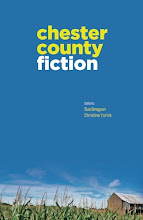Saturday, September 30, 2017
What I've Learned About Giving Public Readings, Part Five
I've often recommended that, when going to a public reading, you should bring a selection of stories to choose from. Once you arrive, size up your audience. Are they interested in one genre, but not another? Is the topic of one of your stories not likely to interest them? You need to pick the right piece for each audience!
(I learned that lesson years ago when I was scheduled on a Monday night during football season. The audience was all women; all the men were off watching the game. Unfortunately, I had nothing available to entertain them -- my work was very male-oriented back them. I bombed.)
However, it's been pointed out to me that new authors don't have a wide variety of work to choose from. Furthermore, most authors concentrate on just one or two genres. If all you write is science fiction and fantasy, you've got a very specific fan base. You probably won't be able to keep an audience of nonfiction or poetry fans entertained.
So, here are my suggestions for a successful public reading when you don't have that many readings to pick from.
1) Find Out What the Audience Likes to Read
You don't have to wait until you arrive to find this out. Ask the person who's organizing the event. If the organizer says that his typical audience loves poetry, but you only write prose, just say "Thanks, but no thanks." No one can entertain every audience.
When you arrive, LOOK at the crowd. What if the audience is all young people, and you only write science fiction? Yes, there are some younger science fiction fans. But SF fans tend to be older. (I'm talking about fans of SF books, not movies or video games.) The people who organize SF conventions even have a name for it: "the graying of fandom."
Yes, younger SF fans do exist. They're the ones most likely to dress oddly. I've even seen them dressed like characters from their favorite books. But if you've got an audience of, say, serious college students who want to hear serious literature, you're in trouble.
Another possible problem is if your work is adult...but the audience includes children. If you can't censor yourself and change the curse words in your story, maybe you shouldn't present it.
And, once again, after you've arrived, ask the organizer, "what do these people like to read?" Maybe they aren't the people the organizer expected when he or she spoke to you before the event.
If you feel you have nothing to entertain them...well, as long as there are other readers, maybe you should back out. Or at least lower your expectations.
2) Make Your Selection SHORT
Keep to your allotted time. If there are several readers, you are probably allotted either five or ten minutes.
Practice reading your piece, and know how long it takes to present. If it's too long, cut it down.
At a recent reading, the only complaint I heard from the audience was that one reader went on too long. Believe me, too short is much better than too long.
I notate my expected reading time of each piece right on my script, so I know how long it should take to deliver.
As the saying goes, "Leave them wanting more."
3) Don't Rush!
Another rookie mistake is to read too quickly.
Sometimes this happens when you're trying to fit a seven-minute piece into a five-minute slot. Don't try it. Cut the piece down to a leisurely five minutes. Or, better yet, four-and-a-half minutes -- that way you have a cushion. And time for the audience to laugh at the jokes (if any).
Other times, the reader speeds up because he or she is nervous. Experience should help you get over your nervousness. If it doesn't, my best suggestion is to time not only your piece, but each page. Write that time on each page. Then put a timepiece where it's clearly visible to you. That will let you know that you should be done (for example) page 2 at the 3 minute-mark. If you're not at 3 minutes when you finish page 2, you'll know you're going too fast.
(I don't know if anyone makes an "click track" app for readers, but that might be helpful. A click track is an even, regular, metronome-like sound that is piped over a singer's headphones in a recording studio. It's a way to keep a singer from speeding up. But then you'd have to wear an earpiece while you read -- which might be too much of a distraction.)
4) Finally, Pick a Piece You Can Deliver
Everybody stumbles over some words. Maybe it's a multi-syllabic word. Maybe it's a technical term. (I was acting in a medical video recently, and my partner had to repeat her part ten times in order to correctly pronounce some medical terms!) Or perhaps it's a foreign word that causes problems. I was once in a play in which a character had to refer to a type of French white wine called Pouilly Fuisse. He couldn't do it. We finally changed it to Chianti.
So, if you have trouble with a word, change it.
Another obstacle to presenting a piece: I recently saw a writer who read a piece that was so emotionally affecting to her that she broke down during the reading. She choked up, then coughed repeatedly. The organizer brought her a glass of water. She drank the water, but it didn't help. Eventually, she was so overcome with emotion, she had to complete her reading while sitting down.
Don't do this. If a piece has such emotional resonance for you that you can't deliver it without breaking up, don't read it.
Those are my suggestions. Happy reading!
Subscribe to:
Posts (Atom)



